Premium Only Content
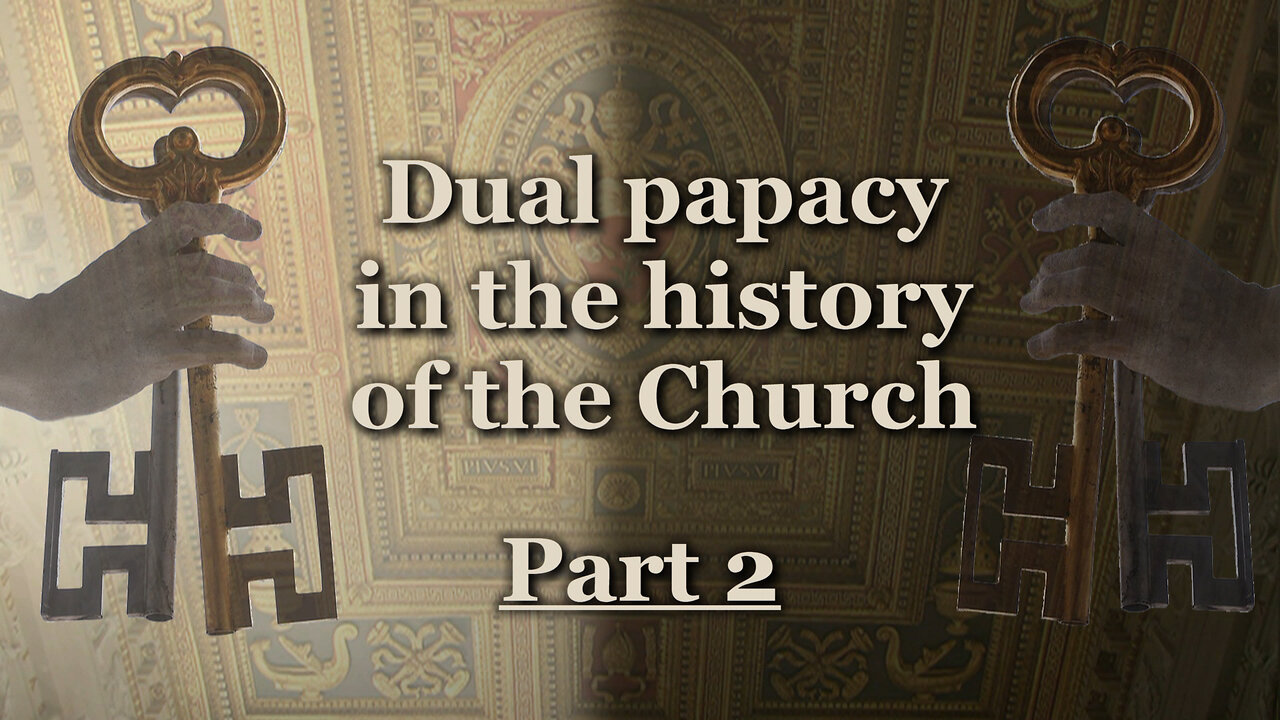
Dual papacy in the history of the Church /Part 2/
Watch this video on: https://declares-the-lord.wistia.com/medias/0gufwmt8cw
https://cos.tv/videos/play/47158274464191488
https://ugetube.com/watch/yFXiC43BooLDHDb
https://www.bitchute.com/video/oRxzTZJRnf5J/
https://vkpatriarhat.org/en/?p=23487
https://bcp-video.org/dual-papacy-2/
Subscribe to BCP newsletters https://bit.ly/3cJLzzm
The Cluniac reform, carried out by Pope Gregory VII, dealt with simony, clerogamy and investiture. In that period of time, often, as an opposition to the reform, pseudo popes appeared.
12th century
Paschal II (1099–1118) – During his pontificate, in 1110, pseudo pope Clement III died. Paschal had Clement’s dead body taken out of the grave and thrown to the river Tiber. Emperor Henry V ordered Paschal II and his cardinals to be arrested and taken to a well-guarded place near Rome. There were also other pseudo popes at the time: Theodoric (1100–1102), Albert (1102) and Sylvester IV (1105–1111).
Gelasius II (1118–1119) – Shortly after his election, Henry V arrived and the archbishop of Braga, who took the name Gregory VIII, was elected as pseudo pope. Later, when the emperor left, Gelasius returned to Rome. However, he was soon forced to flee to France again, where he died in Cluny in 1119.
Callistus II (1119–1124) – Guido, Archbishop of Vienne, was elected pope in Cluny abbey. The cardinals who had stayed in Rome, as well as the clergy and the people agreed with this unusual election. In June 1120, he left for the Eternal City. The Lateran Ecumenical Council of 1123 declared the ordinations made by pseudo Pope Gregory VIII invalid. Equally, all ordinations made by the bishops consecrated by him were declared null and void. Gregory found refuge in Sutri. The place was conquered by Callistus in 1121, who had the antipope led through the streets of Rome and exposed to shame. After that, Gregory VIII died soon.
Honorius II (1124–1130) – After the death of Callistus, a dispute about who would be a new pope arose between powerful Roman families of the Frangipani and the Pierleoni. The Pierleoni pushed their candidate Theobald through and he took the name Celestine II. However, after the election, the party of the Frangipani interrupted the celebration and the new Pope Celestine was even attacked and wounded. The people chose a Frangipani candidate who was proclaimed pope under the name Honorius II right after. Although both Celestine and Honorius relinquished office, Honorius became pope a week later.
Innocent II (1130–1143) – After the death of Honorius II, the cardinals who supported the Frangipani elected Cardinal Papareschi as the new Pope Innocent II. However, that very night the other cardinals, who had been presented with a fait accompli, refused to recognise him and elected Cardinal Pietro Pierleoni, who took the name Anacletus II. This double election showed deficiencies in the decree of 1059 concerning papal elections. Back then, nobody had thought of cases like this. During the Synod of Étampes in 1130, Bernard of Clairvaux firmly supported Innocent. The dual papacy only ended with the death of Anacletus II in 1138. Victor IV became his successor. In June 1139, Innocent personally led the army against Roger II of Sicily who had supported Anacletus and his successor Victor. The papal army suffered a crushing defeat and the Pope himself was taken captive.
Alexander III (1159–1181) – Cardinal Bandinelli was elected pope and took the name Alexander III. But the pro-imperialist party decided to elect Cardinal Octavian who took the name Victor IV. Alexander excommunicated his opponent Pope Victor. Then, a council was called together at Pavia (1160). The Council supported Victor while Alexander was put under anathema. Monasteries at Citaux and Chartreuse favoured Alexander, but the one at Cluny supported Victor. However, Victor died in 1164. Paschal III (1164–1168) was elected as pseudo pope in his place. The following pseudo popes were his successors: Callistus III (1168–1178) and Innocent III (1178–1180).
The Lateran Council of 1179 decided that a candidate must gain a majority of two-thirds of the votes of the cardinals to be elected pope. The two-thirds majority rule remained valid.
14th century
Clement V (1305–1314) – He changed the residence outside Rome. Popes then resided in Avignon in France. The return of Urban VI to Rome gave rise to an unusual situation. One pope reigned in Rome and another one in Avignon.
Urban VI (1378–1389) – On 20 September 1378, the apostolic college at Fondi elected Cardinal Robert of Geneva as pope. He took the name Clement VII. This marked the beginning of the Great Western Schism. Even today it is hard to say who the legitimate pope was. Urban VI excommunicated Clement VII and his supporters and Clement did the same, so basically, the whole Christianity was excommunicated. Clement VII chose Avignon as his residence.
Boniface IX (1389–1404) – After Urban’s death, the cardinals in Rome elected a new pope Pietro Tomacelli of Naples, who took the name Boniface IX. After the death of Clement VII in 1394, the cardinals in Avignon elected the Spaniard Pedro de Luna who took the name Benedict XIII.
15th century
Innocent VII (1404–1406) – After the death of Boniface IX, the cardinals in Rome elected Cosimo Migliorati as pope, who took the name Innocent VII.
Gregory XII (1406–1415) – After the death of Innocent VII, the cardinals in Rome elected Angelo Corrario of Venice who took the name Gregory XII. The Roman cardinals then turned away from Gregory XII and demanded a general council. Benedict XIII, likewise, who convoked the Council of Perpignan, was abandoned by his cardinals. Against the will of both popes, a council was called in Pisa. It started in March 1409. Supporters of conciliarism, who claimed that a council is superior to a pope, took control over the church assembly.
On 5 June, the Council deposed both popes as notorious schismatics, heretics and perjurers. The synod elected a new pope, Cardinal Filargo, who assumed the name Alexander V. The dual papacy changed into a triple papacy as neither Benedict XIII nor Gregory XII had accepted the decision of the Council. Each of the Popes had supporters in different Christian territories.
Alexander V died in 1410. Cardinals elected Baldassarre Cossa in his place who took the name John XXIII. By his temperament, he was more of a warrior than a bishop.
Czech emperor Sigismund (1410–1437) convened a general council in Constance in 1414. The Council deposed all the three Popes. On 6 April, Sigismund issued a dubious decree Haec Sancta Synodus which made a council superior to a pope. John XXIII was imprisoned and died in prison. Gregory XII was already 90 years old and resigned office. Benedict XIII moved his residence to a small island and would not let himself be forced to abdicate. He died in 1423. Martin V (1417–1431) was elected pope. The Council of Constance ended the triple papacy but it also suppressed the reformative movement of the clergy headed by the Czech priests Jan Milíč, Konrád Waldhauser and Jan Hus. In Constance, Jan Hus was falsely accused as a heretic and burnt at the stake. If favourable conditions had been created for the reform of the priesthood, the German Reformation could have been prevented and almost half of the Christians would not have fallen away from Rome.
Pseudo popes began to reign again: Clement VIII (1423–1429) and Benedict XIV (1423). The Council of Basel in 1439 declared its superiority to the pope, and deposed Pope Eugene (1431–1447) in June of the same year. Eugene put the participants of the Council under anathema. However, the Basel council elected pseudo pope Felix V (1439–1449). With Felix V, the era of dual papacy ended. Historians say: “Although Eugene IV saved the papacy from conciliarism, he is responsible for the fact that nothing had been done for the general correction of the Church in its head and in its members. Rome inhibited the necessary spiritual reform and because of that it later had to face the German reformation led by Martin Luther.”
Both the Cluniac and the Czech reform movement aimed to fight against simony and other disorders in the Church, and worked for the spiritual renewal of the priesthood.
It is necessary in the current atmosphere to create environment for spiritual life again. It is equally necessary to build a system of protection against present-day addictions. If the priest does not have it in place, his flock of believers will not have it either. The spiritual awakening will not happen.
What should be done specifically? Four to seven priests should meet on Sunday evenings in a parish house and devote themselves to prayer and to reading of the Word of God in a brotherly fellowship (Acts 6:4), it means to the apostle’s teaching (Acts 2:42). The meeting will end no sooner than on Tuesday afternoon. This is tested and proven practice of many priests. It is required that four hours are spent in prayer on Monday and also on Tuesday. Besides, on Monday, time should be devoted to the Word of God, which will be preached the following Sunday.
Furthermore, a holy liturgy shall be celebrated with piety together on Monday. Within the brotherly fellowship it is good to speak openly about one’s faults and be open to receive criticism. This should all happen in the spirit of repentance keeping in mind the purpose of spiritual cleansing and true imitation of Christ.
There is a great danger present today – the spreading infection of homosexuality. Utmost caution is needed.
The substance of the reform is repentance and prayer. These two tools must take the first place in the lives of us, bishops and priests. If we pass it on as our personal experience to our laity, not just some theories, they will follow us.
As far as dual papacy is concerned, it was almost always caused by a dispute over external authority, that is, external power. This involved material benefits and prestige. The Church does need an external authority, but this authority is only true if it is also a spiritual authority. Its duty is to provide the necessary conditions for spiritual life and to protect faith and morals. In the cases of dual papacy throughout history, neither of the popes promoted self-destruction of the faith and morals. Today, by contrast, pseudo Pope Bergoglio and his sect destroy the Church from within. Therefore, there is only one solution, namely to acknowledge a true Pope in this extraordinary situation. Otherwise, Bergoglio will thoroughly complete the personnel changes and it will no longer be possible to bring the external structure under the authority of the true Pope providing a guarantee of orthodoxy and orthopraxy.
The installation of the true Pope will entail a spiritual struggle since Bergoglio’s sect will never voluntarily give up power and their destructive goals. True reform must also affect the priesthood, resulting in the renewal of the inner life.
+ Elijah
Patriarch of the Byzantine Catholic Patriarchate
+ Methodius OSBMr + Timothy OSBMr
Secretary Bishops
29 August 2023
-
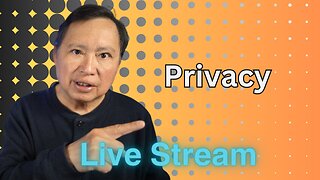 1:03:22
1:03:22
Rob Braxman Tech
1 day agoWhy You Can't Hide When You Are On Whatsapp/Facebook/Instagram. Zero Privacy.
36.2K23 -
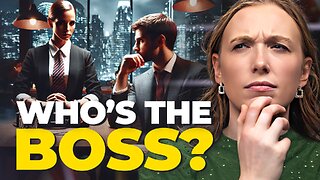 2:24:35
2:24:35
JustPearlyThings
8 hours agoModern Women Earning More Than Their Husbands (Call-In Show) | Pearl Daily
42.2K32 -
 27:49
27:49
The Brett Cooper Show
14 hours ago $11.55 earnedCan b00bs Save The Planet? | Episode 15
37.6K74 -
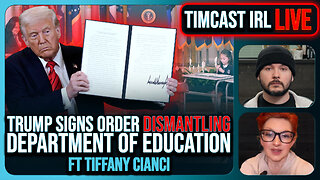 2:45:52
2:45:52
TimcastIRL
7 hours agoTrump Signs Order ENDING The Department Of Education, Woke IS OVER w/Tiffany Cianci | Timcast IRL
197K150 -
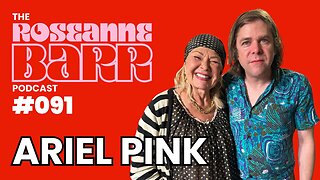 1:48:26
1:48:26
Roseanne Barr
12 hours ago $17.40 earnedCancelled and Uncaged with Ariel Pink | The Roseanne Barr Podcast #91
76.4K38 -
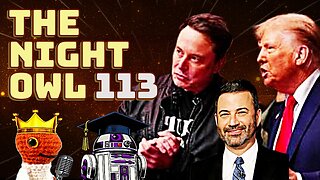 3:25:53
3:25:53
Price of Reason
11 hours agoTrump Focuses on Education! Jimmy Kimmel vs. Elon Musk! Rachel Zegler Snow White Review! ACS Review!
33.8K6 -
 8:00:09
8:00:09
SpartakusLIVE
9 hours agoDuos w/ Twitty || The TITAN of WZ and the King of Ping
64.3K2 -
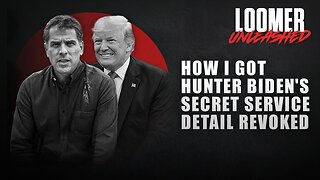 1:26:08
1:26:08
Laura Loomer
7 hours agoEP110: How I Got Hunter Biden's Secret Service Detail Revoked
65.8K49 -
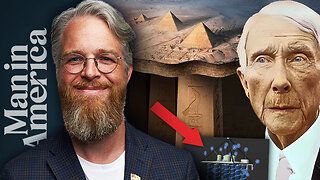 1:30:10
1:30:10
Man in America
12 hours agoScientists Find MASSIVE 2KM Structure Under Pyramids—Our History is a LIE!
68.6K32 -
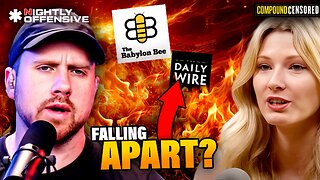 1:15:34
1:15:34
Slightly Offensive
8 hours ago $14.24 earnedIt’s HAPPENING: The TOTAL COLLAPSE of Con INC. | Guest: Sarah Stock & AusPill
71.5K24